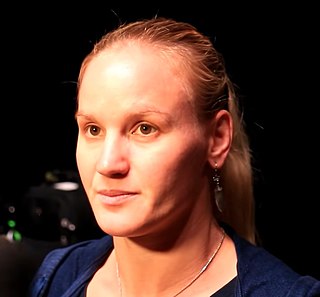A Quote by Dan Chaon
People write fiction in their minds all the time - every time we read a 'human interest' news story, or a true crime tale, we find ourselves fascinated because we're trying to understand why people behave the way they do, why they make the choices they do, how we become who we become.
Related Quotes
I write books because I have always been fascinated by stories and language, and because I love thinking about what makes people tick. Writing a story... 'The Giver' or any other... is simply an exploration of the nature of behavior: why people do what they do, how it affects others, how we change and grow, and what decisions we make along the way.
In fiction, I exercise my nosiness. I am as curious as my cats, and indeed that has led to trouble often enough and used up several of my nine lives. I am an avid listener. I am fascinated by other people's lives, the choices they make and how that works out through time, what they have done and left undone, what they tell me and what they keep secret and silent, what they lie about and what they confess, what they are proud of and what shames them, what they hope for and what they fear. The source of my fiction is the desire to understand people and their choices through time.
The first act of insight is throw away the labels. In fiction, while we do not necessarily write about ourselves, we write out of ourselves, using ourselves; what we learn from, what we are sensitive to, what we feel strongly about--these become our characters and go to make our plots. Characters in fiction are conceived from within, and they have, accordingly, their own interior life; they are individuals every time.
I'm trying to understand cosmology, why the Big Bang had the properties it did. And it's interesting to think that connects directly to our kitchens and how we can make eggs, how we can remember one direction of time, why causes precede effects, why we are born young and grow older. It's all because of entropy increasing.
To read a character I'm not sympathizing with is generally quite a good, attractive proposition because I've got somewhere to go, I've got work to do, to try to understand why they behave like they behave, to relate entirely and understand them and to be completely emotionally connected. That is much more fun 99 percent of the time.
With fiction, you are creating an imaginary world. And it can be a very mechanical process. In a fictional film, you create the characters who become "real people" when facing the camera. When you stop shooting, they change their costumes and become someone else. And people tend to believe in documentary more than fiction. Even if the fiction is based on a true story, everybody will say, "Oh, they're only actors."
We all become different readers in how we respond to books, why we need them, what we take from them. We become different in the questions that arise as we read, in the answers that we find, in the degree of satisfaction or unease we feel with those answers...In the hands of a different reader, the same story can be a different story.
Go back and take a look at what some black writers were saying in the 1820s, the 1830s. They make mention of how some white people would tell their children, if you don't behave, we're going to put you in the n - - seat. If you don't behave, we are going to make you sit with the n - - s. That's why we know that, by then, the word had become a slur.





































